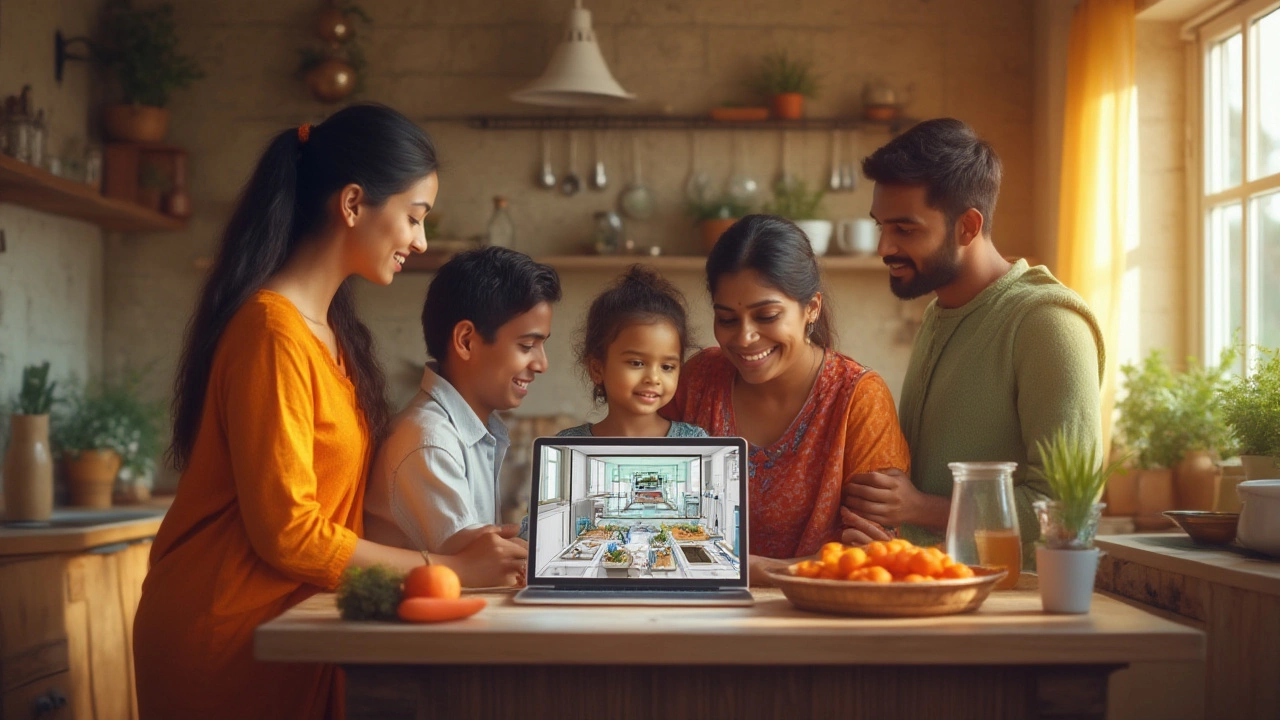Kitchen Planner: Your Guide to Smart Kitchen Design
When working with Kitchen Planner, a tool or service that maps layout, selects materials, sets budgets, and coordinates trades for kitchen remodels. Also known as kitchen design planner, it helps you visualize the space before a single tile is laid. A kitchen planner encompasses layout design, material selection, and budgeting, turning vague ideas into a concrete plan you can follow step by step.
One of the biggest allies of a kitchen planner is the Interior Designer, a professional who creates functional and beautiful interior spaces. Interior designers use planners to test cabinet placements, traffic flow, and lighting schemes without costly trial‑and‑error. When a designer pairs a planner with client goals, the result is a cohesive vision that balances style and practicality, ensuring every square foot works toward the homeowner’s lifestyle.
Key Elements of a Kitchen Plan
Choosing the right Flooring, the surface material that endures foot traffic, spills, and daily wear is a core decision in any kitchen plan. Durable options like sealed concrete, luxury vinyl plank, or high‑grade tile not only survive heavy use but also affect acoustic comfort and visual weight. A well‑chosen floor can reduce cleaning time, support standing comfort, and complement cabinet colors, making it a pivotal part of the overall design.
Natural light and ventilation hinge on the Kitchen Window, the opening above the sink or work area that brings daylight and fresh air into the kitchen. Selecting a window that opens easily when hands are wet, lets in ample daylight, and matches the façade style directly influences cooking comfort and energy use. A smart planner evaluates window placement early, ensuring the sink, prep zones, and appliances benefit from optimal light and airflow.
Budgeting is the glue that holds all other decisions together. A kitchen planner breaks the total cost into clear buckets: cabinetry, appliances, flooring, lighting, and labor. By assigning realistic figures to each bucket, you can spot overruns before they happen and adjust material choices or phasing accordingly. This transparency empowers homeowners to prioritize what matters most—whether it’s premium countertops or a high‑efficiency range.
Another often‑overlooked factor is the workflow triangle, the relationship between the sink, stove, and refrigerator. A planner maps these three zones to minimize steps, improve safety, and speed up meal prep. When the triangle is efficient, the kitchen feels larger and more intuitive, which is why many designers stress its importance during the planning stage.
Putting it all together, a kitchen planner links layout, flooring, windows, budgeting, and workflow into a single, actionable blueprint. Below you’ll find a curated set of articles that dive deeper into each of these topics, from cost‑effective flooring options to the best window styles for a busy kitchen. Use these insights to refine your own plan and move from concept to reality with confidence.
